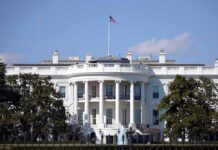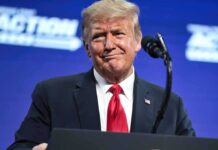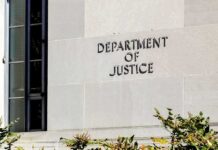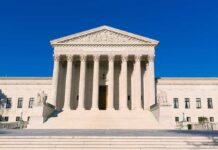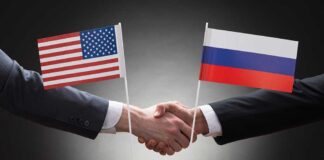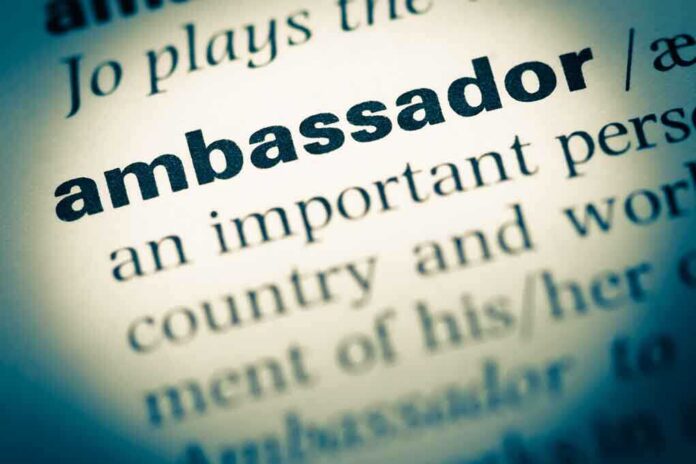
U.S. Secretary of State Marco Rubio declared South African Ambassador Ebrahim Rasool “persona non grata” for criticizing the MAGA movement, expelling him from the country in a rare diplomatic rebuke that has further strained relations between Washington and Pretoria.
Quick Takes
- South African Ambassador Ebrahim Rasool was expelled for comments linking the MAGA movement to “supremacist instincts” during a webinar.
- Secretary of State Marco Rubio labeled Rasool a “race-baiting politician who hates America” in a post on social media.
- Rasool received a hero’s welcome in South Africa, with supporters waving Palestinian flags.
- The expulsion comes amid already tense relations over South Africa’s land expropriation policies and stance on Israel.
- Rubio’s decision to skip the upcoming G20 summit in Johannesburg underscores the diplomatic rift.
Rare Diplomatic Expulsion Signals Deepening Rift
The Trump administration’s decision to expel South African Ambassador Ebrahim Rasool marks a significant escalation in diplomatic tensions between the United States and South Africa. Secretary of State Marco Rubio declared Rasool “persona non grata” following controversial comments the ambassador made during a recent webinar. Rasool’s remarks criticized the MAGA movement as a “response to a supremacist instinct” and referenced demographic shifts in the American electorate. The declaration of persona non grata is one of the strongest diplomatic rebukes available, requiring the ambassador to leave the country immediately.
Secretary Rubio made his position clear. “South Africa’s ambassador to the U.S. is no longer welcome in our great country. Ebrahim Rasool is a race-baiting politician who hates America and hates Trump. We have nothing to discuss with him,” declared Rubio. The statement included a link to a Breitbart article detailing Rasool’s webinar comments. This decisive action by the State Department signals the administration’s unwillingness to tolerate what it views as inflammatory rhetoric from foreign diplomats, especially regarding domestic political movements.
Former US Ambassador to South Africa, #EbrahimRasool, has expressed no regrets about his actions that ultimately led to his designation as a persona non grata, a status that forced him to return home. His comments come amidst ongoing discussions about the future of US-South… pic.twitter.com/vvjtEubSWR
— newsnote (@newsnoteSA) March 23, 2025
Hero’s Welcome in South Africa
Upon his return to South Africa, Rasool received a hero’s welcome at Cape Town International Airport, where hundreds of supporters gathered with Palestinian flags and chanted “free Palestine.” The warm reception stands in stark contrast to the intended effect of the expulsion, which typically aims to shame the diplomat and their home country. Rasool addressed the crowd, appearing defiant rather than contrite about the situation that led to his expulsion from the United States.
Rasool defended his comments as analytical rather than personal, stating they were an assessment of political phenomena and not attacks on individuals or the nation. He emphasized the need for South Africa to repair its relationship with the United States, despite the current tensions. However, he also reaffirmed South Africa’s commitment to its case at the International Court of Justice against Israel, a position that has been a point of contention with the U.S. administration.
Existing Tensions Amplified
The ambassador’s expulsion comes amid already strained relations between the two countries. The United States had previously reduced financial aid to South Africa over contentious domestic policies, particularly the Expropriation Act, which allows for land seizure without compensation. This law has been a significant point of friction in bilateral relations, with American officials expressing concern about property rights and the rule of law in South Africa.
South African President Cyril Ramaphosa’s office described the expulsion as “regrettable” and emphasized the country’s desire for a “mutually beneficial relationship” with the United States. However, Secretary Rubio’s decision to skip the upcoming G20 summit in Johannesburg further highlights the growing rift between the two nations. The diplomatic fallout raises significant questions about the future trajectory of U.S.-South Africa relations and what steps might be taken to repair the damaged ties.
Implications for Future Relations
The expulsion of Ambassador Rasool represents more than just a personal rebuke; it signals a potentially significant shift in American foreign policy toward South Africa. With Secretary Rubio’s strong stance against what he perceives as anti-American rhetoric, relations between the two countries face an uncertain future. The Trump administration appears to be taking a firmer position on diplomatic relations, demonstrating little tolerance for criticism of domestic political movements from foreign representatives.
South Africa’s continued advocacy for Palestinian causes, including its case against Israel at the International Court of Justice, may further complicate efforts to repair bilateral relations. With Palestinian flags prominently displayed at Rasool’s homecoming and his reaffirmation of South Africa’s stance on the issue, the diplomatic divide shows few signs of narrowing in the immediate future. For now, both nations will need to navigate these turbulent diplomatic waters with care to prevent further deterioration of their historically significant relationship.
Sources:
Expelled South African ambassador returns home and says will wear US sanction as ‘badge of dignity’
U.S. declares South African ambassador PERSONA NON GRATA


